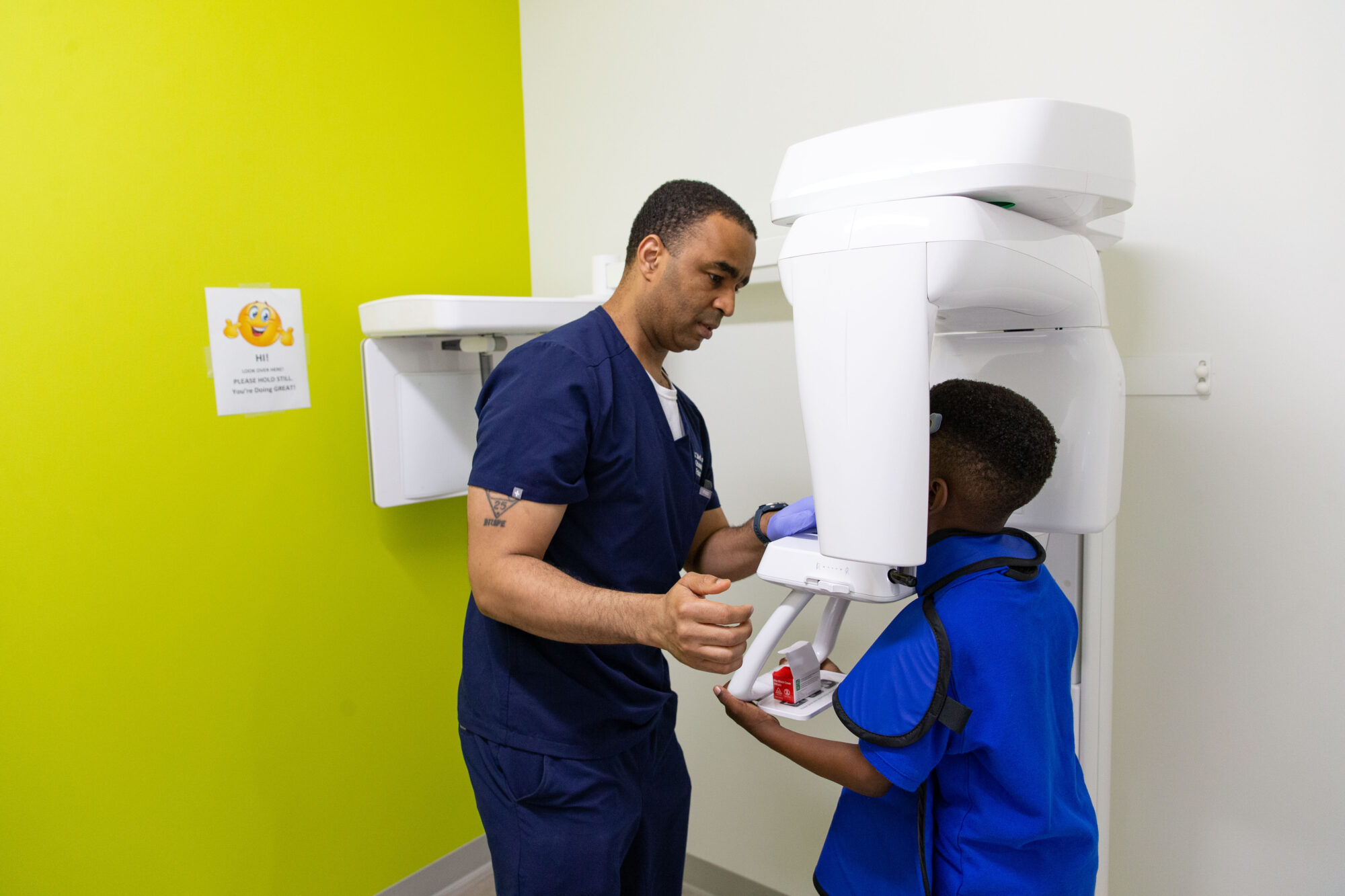Going to the dentist can be scary, especially when you’re young. Like, why is this person touching my teeth? Why are their tools so loud? At Ivy City Pediatric Dentistry and Orthodontics, we work hard to make sure your child’s visit isn’t an anxious one. Today, we’ll unpack what dental anxiety is, and the top three ways to help with it.
Dental Anxiety: A Real Thing
Patients experience nervousness at the dentist’s office at any age! It’s not just kids who get antsy. First, let’s talk about what contributes to dental anxiety.
- Pain and Discomfort: This is a huge factor for a lot of patients! It’s perfectly normal to be afraid of pain during a procedure, especially if you’ve experienced discomfort before. This can also extend to the use of needles and injections, which are often a necessary part of numbing treatments that Dr. JC executes on a daily basis.
- Sensory Factors: Part of being a child is having exaggerated sensory experiences, which can make the dentist a strange place to be. Unpleasant sights, sounds, and smells might cause distress.
- Fear of the Unknown: A root of fear at any medical office is simply not knowing what’s going on! This is why communication is a huge part of helping to ease anxiety, which we’ll discuss more later.
So now that we know some of the causes of dental anxiety, here are some of the effects:
- Avoidance of dental care can lead to serious dental problems. Young patients should always have preventive and interceptive treatment when issues arise, rather than ignoring the problem.
- Poor oral hygiene can also develop without guidance from professionals like Dr. JC.
- Delayed consequences can occur when you don’t get up-to-date treatment. For example, that small cavity you have as a kid can develop into something quite serious as an adolescent if it isn’t filled.
The Role of the Dentist
Dentists are experts in their field; a pediatric dentist is an expert in dentistry for kids. Meaning, they are highly trained to work with the most anxious of patients, and use methods to create a calming office environment. Dr. JC may use a number of strategies to help, or suggest ways to help ease fear. But the key thing to remember is that you can trust your dentist!
Three Ways To Help
There’s a variety of helpful advice out there, but we’re going to focus on three big factors that are common ways to deal with the anxiety of a pediatric patient (and/or bigger kids!).
- Communication
This is probably the single most important part of any visit. If you’re experiencing fear, you need to let your dentist and hygienist know. That way, our team can be mindful of this during whatever procedure you may experience. We can’t help if we don’t know what to address! It’s up to either a parent or a patient to ask questions and speak up, even if it’s hard.
For example, we’ll regularly check in with you during a routine procedure like a filling to make sure you’re numbed properly in the beginning, and establish a way to communicate while we’re working, such as raising a hand. We can also provide thorough explanations as we work through the steps of a treatment, so that you aren’t in the dark any step of the way!
- Sedation Dentistry and Distraction
In the most severe cases of anxiety, we rely on tools like nitrous oxide to help us out. This is also called laughing gas. It’s a highly safe and reliable sedative that provides a mild state of relaxation and euphoria, and can make things go smoother for scared patients. If you have any questions about the effects of nitrous oxide on pediatric patients or how we use it, feel free to ask us during your visit!
Distraction is a natural form of sedative, in a way! Using in-ear headphones to play music or wearing earplugs can be extremely effective for a lot of patients. It muffles the sounds of our tools and can provide a sense of comfort. Again, we can establish a way to communicate, such as tapping on the patient’s arm if they can’t actively hear us.
- Mental Techniques
A lot of times, it truly is all in our head. There are a lot of relaxation and mindfulness techniques you can employ in stressful situations, including visits to the dentist’s office. Practicing deep, slow breathing can reduce anxiety and promote a sense of calmness. Gradual exposure to our office and seeing how our team cares for patients can also reinforce positive thoughts as time goes on. If anxiety is truly debilitating, it might also be a good idea to seek counseling for your child to find a long-term solution.
Have No Fear!
Dental anxiety is common and legitimate, and we are more than happy to help fight it with your child so that they can receive the treatment they need. If you have other questions about this issue, or want to request an appointment, our DC office is only a call away at 202-953-0171!



